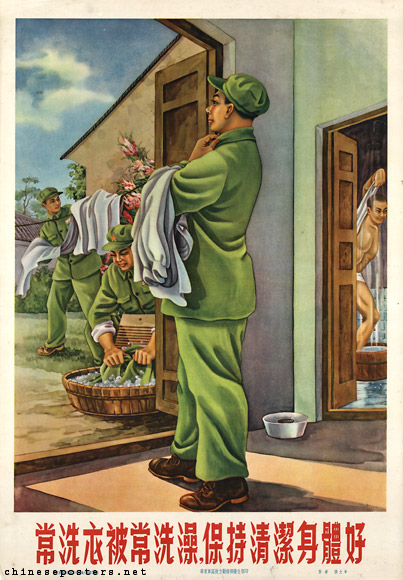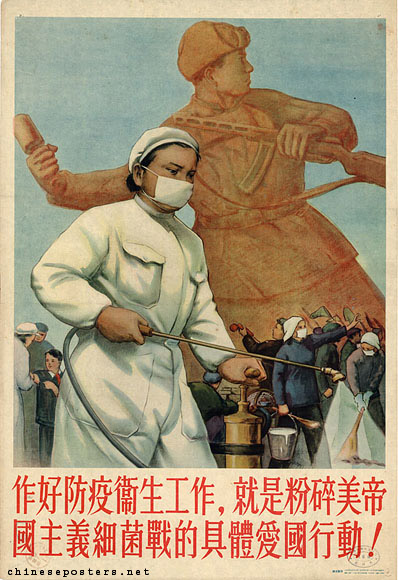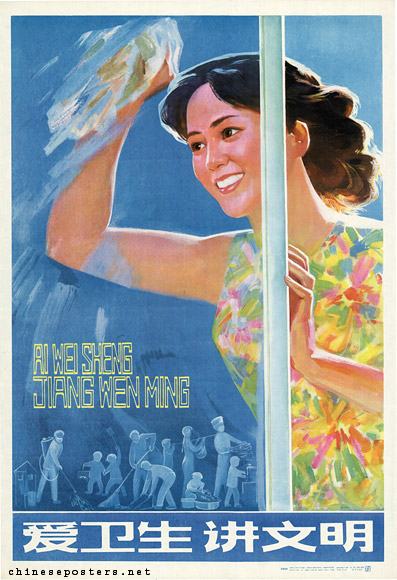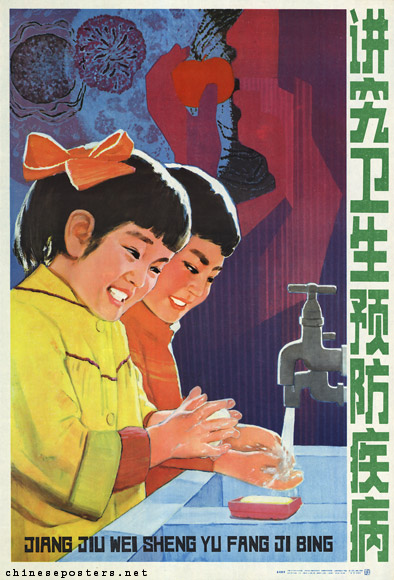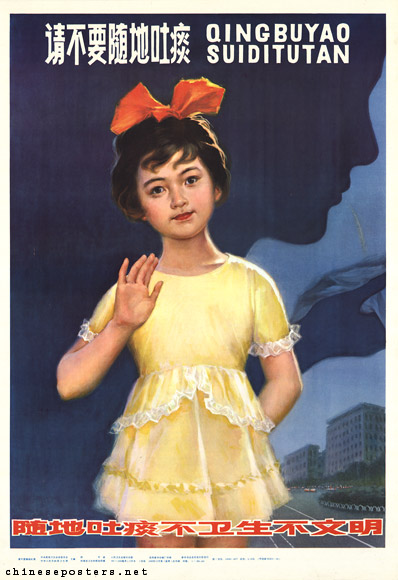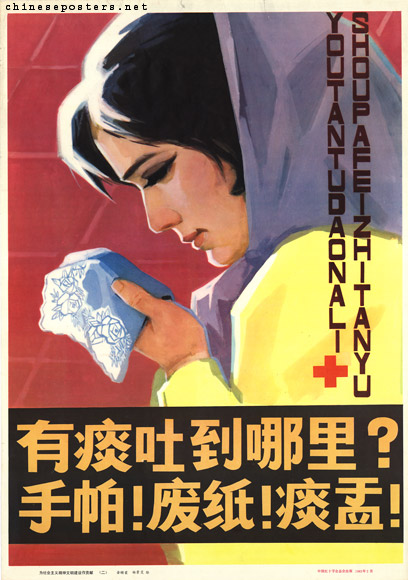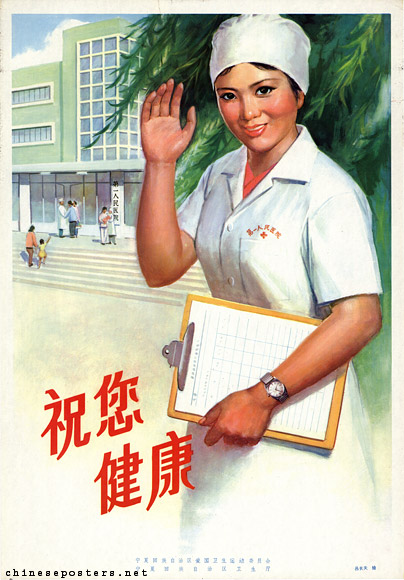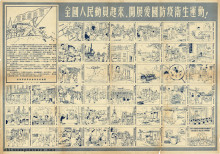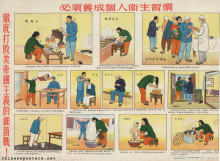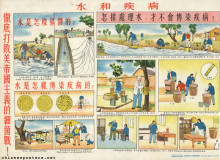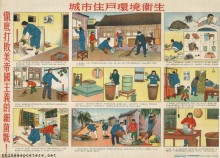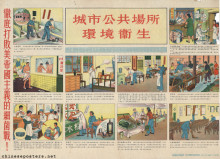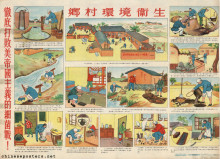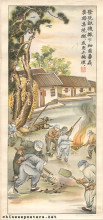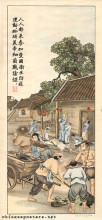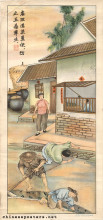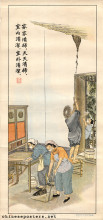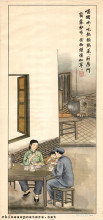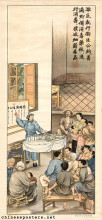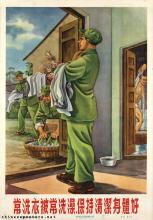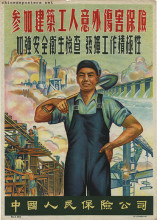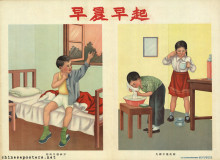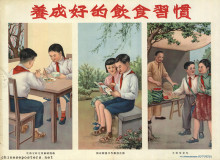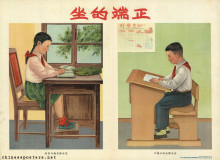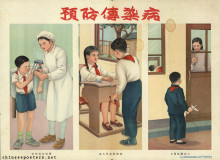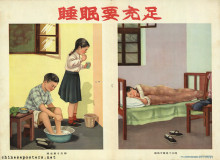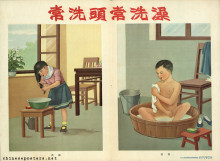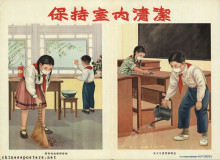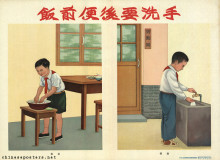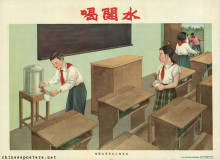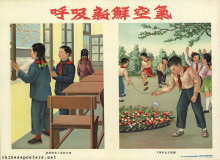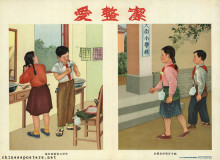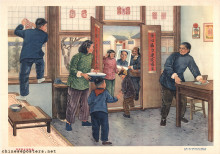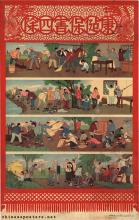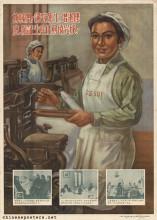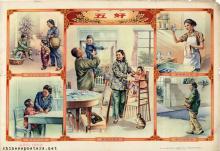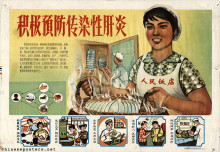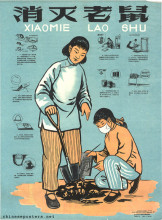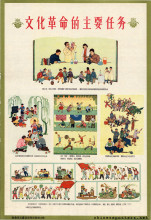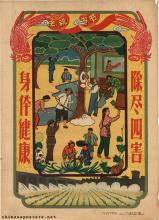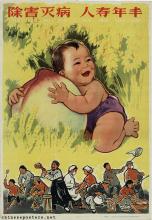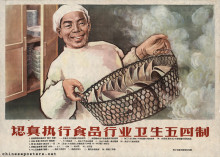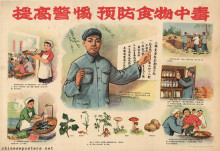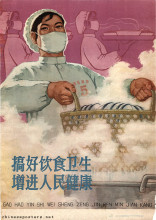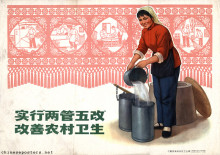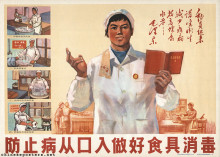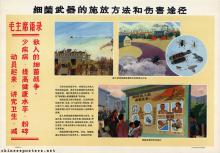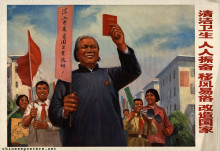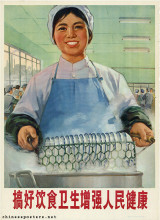Wash clothes and body regularly, maintain cleanliness, for good health, ca. 1952
During the early years of the Republic, many reformist thinkers tried to fathom why Chinese were not respected by foreigners. One of these thinkers was Sun Yatsen, who was convinced that "competent governance of the body’s natural functions" was a "necessary condition for competent government". As long as Chinese were "lacking in personal culture", they would not be respected. Sun and others called for an end to the practice of growing fingernails to an unseemly length, they advocated regular brushing of the teeth, criticised the practice of farting at will, and tried to educate the people that hawking and spitting was simply "not done". Keeping oneself tidy became part of a new style of personal self-management that was considered essential to show the world that the Chinese people had woken up.
To do a good job in epidemic prevention and hygiene work is concrete patriotic behavior ..., 1952
The stress on personal hygiene remained an important aspect of raising the Chinese consciousness during the 1930s and 1940s. After the founding of the People’s Republic in 1949, education in hygiene was stepped up even further, often in the form of Patriotic Hygiene Campaigns, the first of which took place in 1952. Observing hygienic rules even came to be seen as patriotic. The eradication of diseases and the public and private behavior or conditions that caused them was considered equally important as national construction, ferretting out counterrevolutionaries and class enemies, or making revolution, to establish the identity of New China. This often took the form of mass campaigns, such as the Eradicate Four Pests Movement (chu si hai yundong) during the Great Leap Forward, and the various schistosomiasis eradication campaigns that took place in 1955-1959.
Love hygiene, stress civilization, 1983
Practice hygiene to protect against disease, 1983
In the early 1980s, personal hygiene was again equated with a sense of having culture. Moreover, due to the changes that were taking place in the political arena and the economy with Deng Xiaoping taking over, there was a general feeling that from that point on, things would be handled differently. This idea was strengthened by the spate of posters produced in those years that showed people (usually women and children) cleaning windows. It almost seemed to indicate that all things - including politics - would become more transparent, more visible.
The use of symbols pointing to type of political hygiene was quickly replaced by a more regular approach. Posters showing children washing their hands almost became a standard subject of the educational posters aimed at inculcating Socialist Spiritual Civilization. Another type of unhygienic behavior that was addressed frequently in propaganda posters was spitting, but without apparent success: even in the run-up to the 2008 Olympic Games in Beijing, the fight against hawking and spitting continued unabated.
Please do not spit freely--Spitting freely is neither hygienic nor civilized, 1983
Where do you spit your phlegm? In a handkerchief! In wastepaper! In a spittoon!, 1983
In the 1990s and beyond, the calls for personal hygiene, relatively safe from a political perspective, have continued. They remain part and parcel of the Socialist Spiritual Civilization campaigns, which are periodically directed at primary and secondary school students. The prevention of further outbreaks of SARS and avian flu have made personal and animal hygiene of the utmost importance, however, for the population at large.
John Fitzgerald, Awakening China - Politics, Culture, and Class in the Nationalist Revolution (Stanford: Stanford University Press, 1998)
Lu Liu, "Bacterial Imagination: Seeing the Enemy in the People’s Republic of China of the Early 1950s", China Perspectives 2020/1, 17-24
Ruth Rogaski, "Nature, Annihilation, and Modernity: China’s Korean War Germ-Warfare Experience Reconsidered", Journal of Asian Studies 61:2 (2002), 381-415
Nianqun Yang, "Disease Prevention, Social Mobilization and Spatial Politics: The Anti Germ-Warfare Incident of 1952 and the ‘Patriotic Health Campaign’", The Chinese Historical Review 11:2 (2004), 155-182
